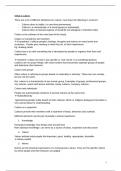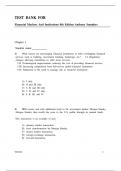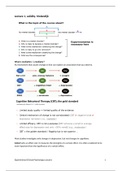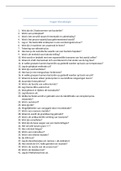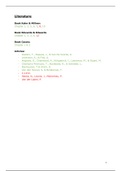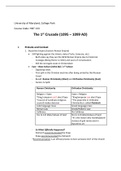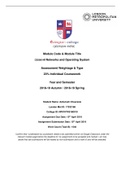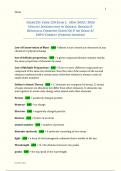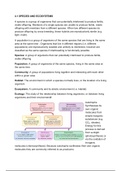QUESTIONS AND ANSWERS
Eustress - CORRECT ANSWER-body adapts to overload and
becomes stronger in an effort to counteract the perceived
stress
Distress - CORRECT ANSWER-overreaction to a perceived
stress, leading to unnecessary hormonal responses and tissue
damage
training improvement is greater in untrained or trained people -
CORRECT ANSWER-untrained
undertraining and season it would occur - CORRECT
ANSWER-an athlete would do this between competitive
seasons or during active rest
off-season
acute overload and season it would occur - CORRECT
ANSWER-athlete is stressing the body to an extend necessary
to improve physiological function and performance
preseason
overreaching - CORRECT ANSWER-brief period of heavy
overload without adequate recovery (critical phase of training)
, overtraining, when does it occur, can you fix it fast - CORRECT
ANSWER-point at which an athlete experiences physiological
maladaptations and chronic performance decrements
can occur with each of the major forms of training
no
excessive training - CORRECT ANSWER-volume and/or
intensity of training are increased to extreme levels and can
have negative effects
causes of overtraining - CORRECT ANSWER-periods of
excessive training or emotional stress
symptoms similar to clinical depression
alterations in the nervous, endocrine and immune systems
parasympathetic overtraining responses (endurance training) -
CORRECT ANSWER-early onset of fatigue
decreased RHR
rapid heart rate recovery after exercise
decreased resting BP
treatment and prevention of overtraining - CORRECT
ANSWER-treatment: marked reduction in training intensity or
complete rest and counseling
prevention: follow periodization training procedures and pay
attention to carb intake
detraining - CORRECT ANSWER-partial or complete loss of
training-induced adaptations in response to cessation of
training or a substantial decrease in training load
ecological model change factors - CORRECT ANSWER-
intrapersonal (knowledge), interpersonal (family), institutional
(resources), community (standards), public (state law)


